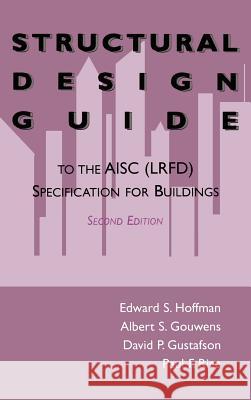Structural Design Guide: To the Aisc (Lrfd) Specification for Buildings » książka
Structural Design Guide: To the Aisc (Lrfd) Specification for Buildings
ISBN-13: 9780412068713 / Angielski / Twarda / 1996 / 308 str.
I I This book is intended to guide practicing structural engineers into more profitable routine designs with the AISC Load and Resistance Factor Design Specification (LRFD) for structural steel buildings. LRFD is a method of proportioning steel structures so that no applica ble limit state is exceeded when the structure is subjected to all appro priate factored load combinations. Strength limit states are related to safety, and concern maximum load carrying capacity, Serviceability limit states are related to performance under service load conditions such as deflections. The term "resistance" includes both strength states and serviceability limit states. LRFD is a new approach to the design of structural steel for buildings. It involves explicit consideration of limit states, multiple load factors and resistance factors, and implicit probabilistic determination of relia bility. The type of factoring used by LRFD differs from the allowable stress design of Chapters A through M of the 1989 Ninth Edition of the AISC Specifications for Allowable Stress Design, where only the resistance is divided by a factor of safety to obtain an allowable stress, and from the plastic design provisions of Chapter N, where the loads are multi plied by a common load factor of 1.7 for gravity loads and 1.3 for gravity loads acting with wind or seismic loads. LRFD offers the structural engineer greater flexibility, rationality, and economy than the previous 1989 Ninth Edition of the AISC Specifications for Allowable Stress Design."











